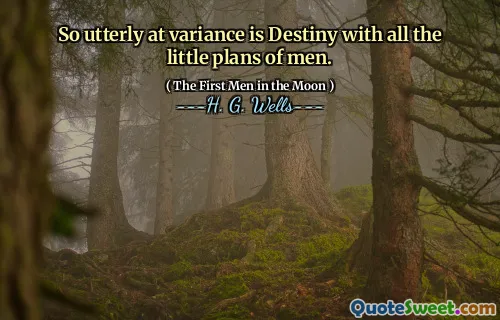
What good would the moon be to men? Even of their own planet what have they made but a battleground and theatre of infinite folly? Small as his world is, and short as his time, he has still in his little life down there far more than he can do.
In H.G. Wells' "The First Men in the Moon," the author contemplates humanity's relationship with the universe. He questions the value of celestial bodies like the moon, suggesting that despite its beauty, it holds little significance for mankind, who often seems fixated on conflict and folly. The moon may be a distant marvel, yet humans remain preoccupied with their earthly struggles.
Wells emphasizes the absurdity of human existence, pointing out that even within their limited lifespan, individuals are burdened by more than they can handle. He suggests that rather than seeking to conquer space, humanity should focus on the more profound, immediate challenges present on their own planet. In doing so, he critiques the distractions and tendencies that hinder mankind from realizing its true potential.











